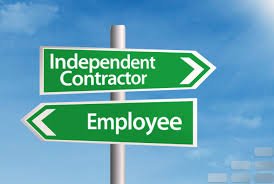Small Business Accountant Tax Tips for the Self-employed
Miami Small Business CPA Tax Tips for the Self-employed.
Small Business CPA knows there are many benefits that come from being your own boss. If you work for yourself, as an independent contractor (like a Small business tax service for example), or you carry on a trade or business as a sole proprietor, you are generally considered to be self-employed.
Small Business CPA wants you to be aware of six key points the IRS would like you to know about self-employment and self-employment taxes:
1. Self-employment can include work in addition to your regular full-time business activities, such as part-time work you do as a small Business CPA at home or in addition to your regular job.
2. If you are self-employed, like a small business CPA, you generally have to pay self-employment tax as well as income tax. Self-employment tax is a Social Security and Medicare tax primarily for individuals who work for themselves. It is similar to the Social Security and Medicare taxes withheld from the pay of most wage earners. You figure self-employment tax using a Form 1040 Schedule SE. Also, you can deduct half of your self-employment tax in figuring your adjusted gross income.
3. If you’re a Business CPA you can file an IRS Schedule C, Profit or Loss from Business, or C-EZ, Net Profit from Business, with your Form 1040.
4. If you are a self-employed Business CPA (as an example) you may have to make estimated tax payments. This applies even if you also have a full-time or part-time job and your employer withholds taxes from your wages. Estimated tax is the method used to pay tax on income that is not subject to withholding. If you fail to make quarterly payments you may be penalized for underpayment at the end of the tax year.
5. You can deduct the costs of running your business. These costs are known as business expenses. These are costs you do not have to capitalize or include in the cost of goods sold but can deduct in the current year.
6. To be deductible, a business expense must be both ordinary and necessary. An ordinary expense is one that is common and accepted in your field of business. A necessary expense is one that is helpful and appropriate for your business. An expense does not have to be indispensable to be considered necessary.
Small Business CPA tax services
For more information see a Small business CPA. You can also reference the Self-employment Tax Center, IRS Publication 334, Tax Guide for Small Business, IRS Publication 535, Business Expenses and Publication 505, Tax Withholding and Estimated Tax, available at www.irs.gov.
Welcome to the Gutenberg Editor
The goal of this new editor is to make adding rich content to WordPress simple and enjoyable. This whole post is composed of pieces of content—somewhat similar to LEGO bricks—that you can move around and interact with. Move your cursor around and you’ll notice the different blocks light up with outlines and arrows. Press the
How to Increase Profit Margins Through Virtual CFO Services
How to Increase Profit Margins Through Virtual CFO Services

Great Accounting Firms Share These 10 Traits
Great Accounting Firms Share These 10 Traits which has gone far beyond the paper-pushing days and now involves acting as a virtual CFO

Tax Accountant in Miami Cope with IRS Tax Season Delay
Tax Accountant said IRS delays start of tax season for individual returns would be postponed until February 17 with some as late as March

Miami Accountants Philosophy of Up or Out
Its up or out for Miami Accountants firms are faced with the dilemma of keeping long-term managers that are not ready to be equity partners or let them go.

Contadores en Miami Explican Auditorías del IRS
Contadores en Miami, Gustavo A Viera CPA, explica los pasos de una auditoría, desde la notificación de la auditoría hasta el cierre de la misma
Home » Blog » Accountants in Miami » Small Business Accountant Tax Tips for the Self-employed

